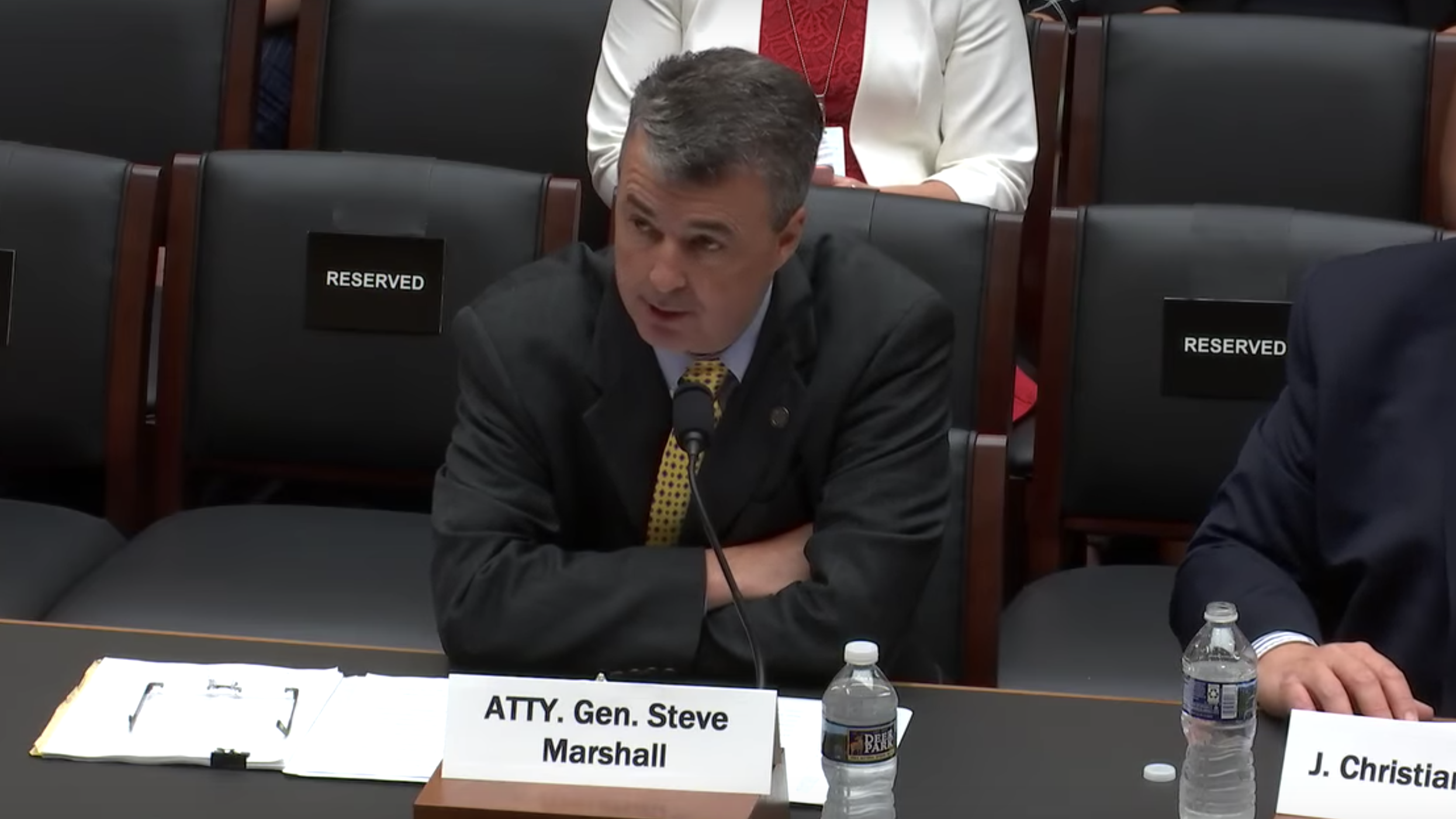Reporting death is never easy.
There is no good way to do it. There is no right question to ask. There is inevitably the feeling that you, as an outsider, are intruding upon a situation that you cannot fully appreciate because you are not dealing with the loss and pain.
But make no mistake: Reporting on death is one of the responsibilities of a news reporter.
That is particularly true in the case of public officials and their families. And it is even truer when those deaths involve unusual circumstances.
That is why on Tuesday, media outlets, starting with al.com, began to report the details of the death of Bridgette Marshall, wife of Alabama Attorney General Steve Marshall.
The details in those stories were not particularly graphic. The details were not sensationalized. All of the details were simply copied from the public police report prepared by the Murfreesboro (Tenn.) Police Department.
Oddly, the attorney general, a former county district attorney, doesn’t seem to understand this fairly common practice that occurs following thousands of deaths each year.
At least, he didn’t seem to understand it when he opened his press conference on Wednesday by vilifying al.com for its story on Bridgette Marshall’s death. A report was written more than two days following her death, and almost exclusively quoting from the police report.
“I watched my daughter read a reckless article last night that disclosed the circumstances of how Bridgette died,” Marshall said, after noting that he was being “forced” to hold the news conference to address rumors.
How the story was “reckless,” I’m not sure. I’m also not sure why Marshall’s daughter, a 22-year-old who he said was a month away from being married, did not know the very basic details contained in that story.
If we’re being fair here, the media has been more than respectful to the Marshall family during this awful situation. For 48 hours, despite solid information from solid sources, state media outlets didn’t press the official line from the AG’s office — that Bridgette Marshall died after a struggle with mental illness.
But we certainly could have.
There was not one single piece of information handed out by Marshall at Wednesday’s press conference — a press conference where he laid bare all of his late wife’s struggles with addiction, health and mental illness — that we didn’t know before lunch on Sunday. Right down to what was said during the phone call between them.
APR held all of that back out of respect for the family, waiting to see what would be contained in the forthcoming police report. And we allowed the police report to dictate just how much we reported.
Because those reports are public information and are routinely reported by news outlets. Each time you see the details of a homicide or a death investigation, that information, more likely than not, came from a police report or coroner’s report.
And those reports are made public for a few reasons — to assure accountability and in the interest of public health and safety. For example, if a person dies of a gunshot wound, the public has an interest in knowing if it was self-inflicted or possibly murder, and what reasons the police had for making their determinations.
Basically, we, as a society, decided a long time ago that the benefit to the public of providing the basic details of a person’s death outweighs whatever privacy concerns the reports might bring.
It’s inconceivable that Steve Marshall isn’t aware of this, so maybe Wednesday’s outrage was less about the reporting and more about his personal grief. Maybe that’s a bit more understandable.
But let’s be clear about two things: no one in the media wronged Marshall or his family by reporting the facts of wife’s death. And no one in the media took any joy about reporting those facts.



















































